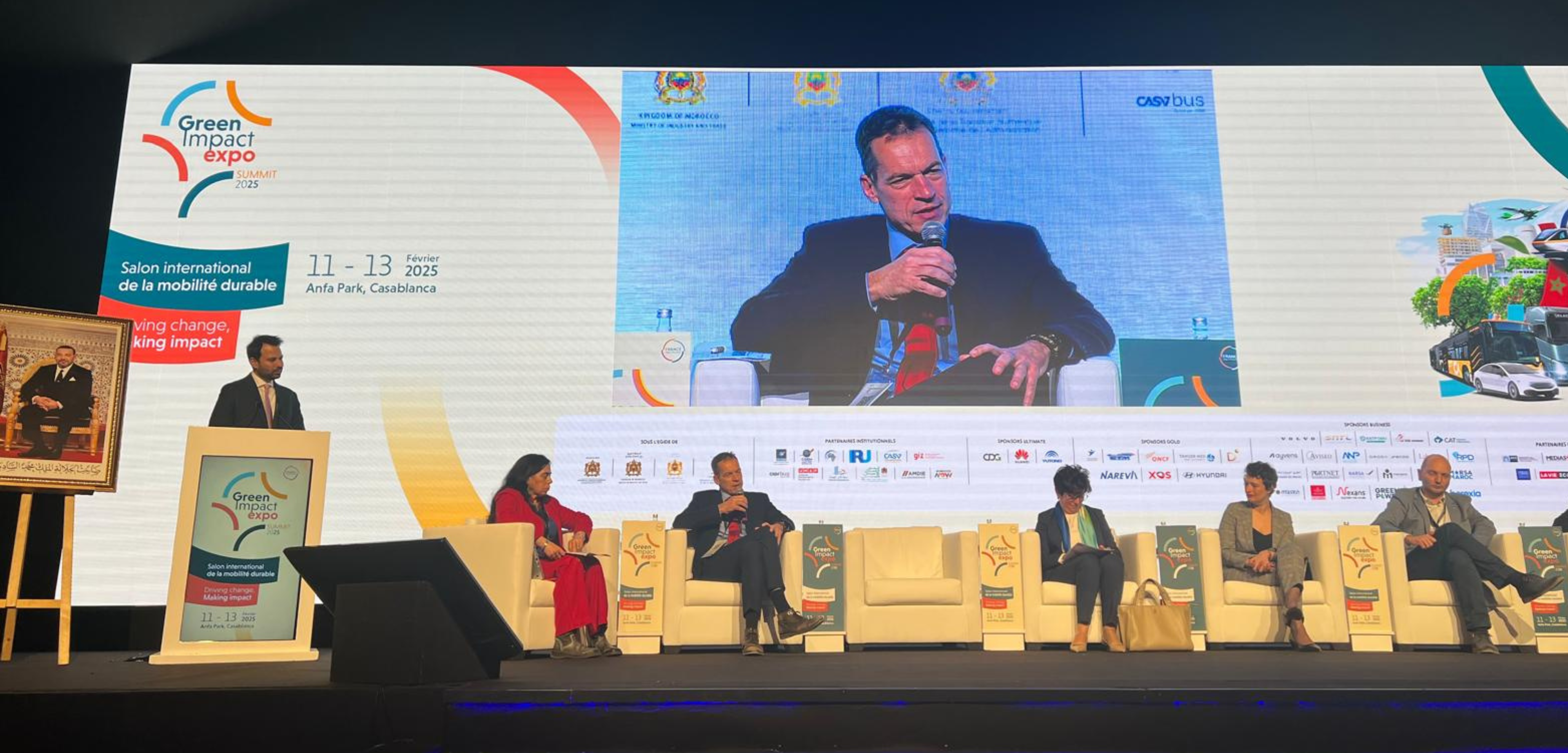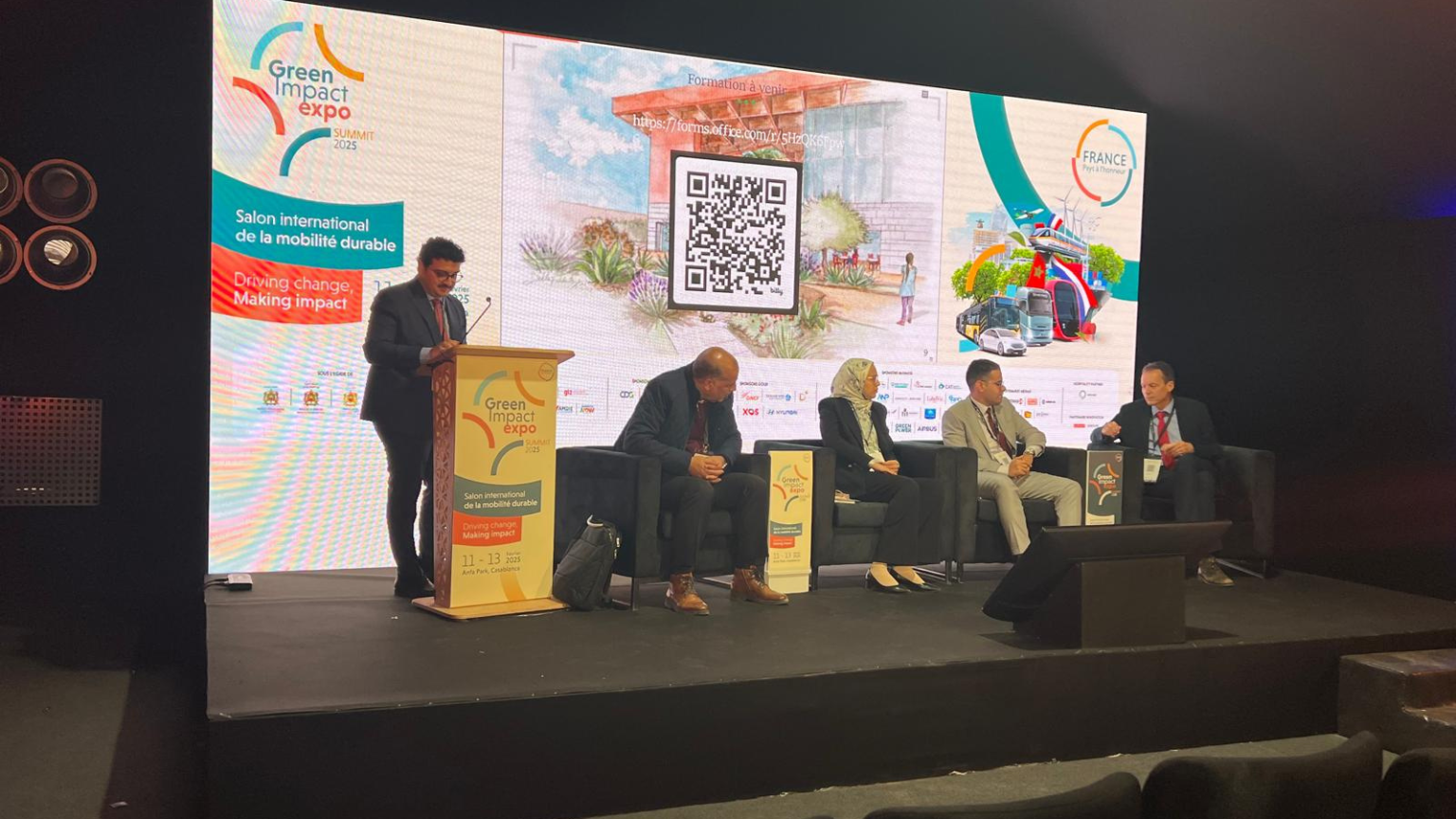Decarbonising road transport and developing the necessary skills took centre stage at this week’s Green Impact Expo & Summit in Morocco, where IRU laid out actionable strategies for a sustainable, skilled future in mobility.
At the Green Impact Expo & Summit in Casablanca, Morocco, this week, hosted by the Fédération Du Transport Et De La Logistique, IRU participated in two panels, presenting actionable solutions for decarbonising road transport through workforce training and sector professionalisation.
During the first panel, “Decarbonisation of Transport: Strategic Framework for a Successful Energy Transition”, IRU showcased how its Green Compact – a collective global action to achieve carbon neutrality in commercial road transport by 2050 – is driving decarbonisation efforts.
IRU Director of Certification and Standards Patrick Philipp said, “The IRU Green Compact study has shown that we can reduce 50% of road transport’s carbon emissions through efficiency measures. These actions can be implemented today.”
The Green Compact’s “dual approach” to decarbonising road transport leverages both efficiency measures and alternative fuels.
Efficiency measures cover logistics (retiming, route optimisation and eco-trucks), vehicles (tyres, lightweighting and advanced lubrication), and drivers (eco-driving, skills monitoring and certification schemes). The second level of action focuses on building a robust, practical and economic transition to alternative fuels.
“Of the significant 50% reduction in emissions, 15% can be achieved through eco-driving training. Transport operators can lower both costs and emissions by improving driving efficiency,” highlighted Patrick Philipp.


